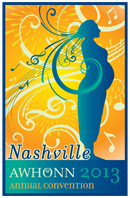Integrating Evidence for Excellence in the Care of Women and Newborns – the Evidence-Based Fellows Program
Title: Integrating Evidence for Excellence in the Care of Women and Newborns – the Evidence-Based Fellows Program
- Relate a pragmatic model to facilitate the integration of evidence into practice.
- Discuss an evidence-based practice project to promote mother/baby attachment by allowing mothers and babies to remain together 24 hours per day.
- Detail a minimum of three (3) evidence-based practice projects completed within an academic, Magnet hospital.
Although the importance of evidence-based practice is readily acknowledged and ascribed to, studies show a small percentage of nurses are incorporating research findings into practice. This presentation describes a pragmatic model implemented in a Magnet hospital- the Evidence- Based Practice (EBP) FellowS (Sharing Science) program- to facilitate the integration of evidence into practice. The EBP FellowS program is a 12 week offering of didactic and project development, with an additional 8- 12 mentored process to project completion. Participants are selected based on a proposed question that has potential to improve patient care through the translation of evidence into practice. FellowS participate in didactic offerings, workshops and coaching sessions that take them from question formulation through an evidence review and subsequent project development, implementation, evaluation, and dissemination. For this presentation, the aforementioned process will be illustrated by an EBP project undertaken by a team from the mother- baby unit.
Proposed change:
Based on evidence that non-separation leads to improved attachment between mother and baby, emotional stability, protection against infection, and increased breast feeding rates, this team is seeking to promote mother/baby attachment by allowing mothers and babies to remain together 24 hours per day. This would, hopefully, decrease or eliminate the need for a newborn nursery.
Implementation, outcomes and evaluation:
In order to implement this evidence- based project, the mother- baby team will establish a non-separation model of care, by educating the staff through staff meetings and group sessions. Questionnaires and surveys will distributed to mothers to gather their perceptions of “rooming- in”. The nurses on the mother- baby unit will also receive surveys to determine reasons for separation of mother and baby. Admission pamphlets will explain the non-separation model, prior to the mother/baby stay. Upon completion of this EBP Performance Improvement Project, expected findings are an increase in patient satisfaction and comfort with newborn care. This study is anticipated to be completed by October, 2012.
Implications for nursing practice:
The EBP FellowS program is a model that can be replicated in a wide variety of healthcare settings. More specifically, the EBP study to promote mother/baby attachment serves as an example of how to use evidence to positively improve practice in the women and newborn settings.
Keywords:
EBP, non- separation, mother/baby attachment, performance improvement

